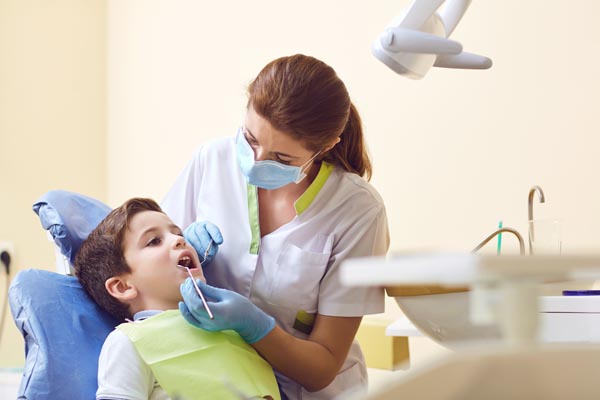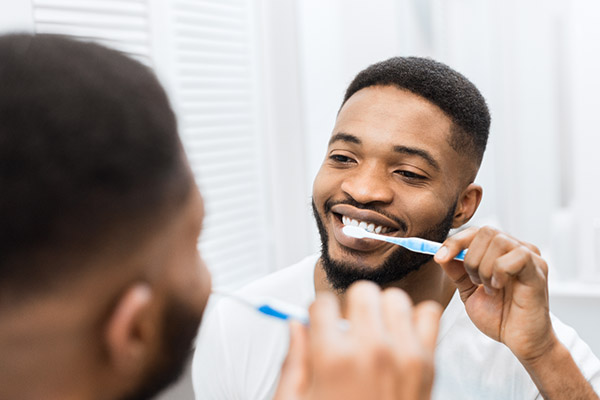How Dentistry for Children Can Ease Your Child’s Dental Anxiety

When it comes to dentistry for children, dental anxiety is a common issue. Many factors are responsible for the child’s fear of the dentist, including parents. When a parent is afraid of visiting the dentist, they will naturally put that fear in the hearts of their children.
The fear factors
Children’s dental anxiety manifests in several forms. The child’s dental fear may be a result of his or her general opinion regarding anxiety or other factors related to the child. However, and more importantly, the child’s anxiety is mostly a product of the same fear in family members, especially parents.
The extent of fear is different from person to person. The child’s worries may stem from a previous dental visit, either in the office waiting area or even with the dentist. Regardless of the origin of the fear, parents that evaluate themselves regularly are influential in preventing, managing and lessening the initial negative reaction to oral care.
Dental anxiety in children manifests in various ways, including fainting, complaining, crying, flushed expressions, missed or canceled dental schedules and panic attacks. In many cases, if the fear is not managed in time, visiting the dentist can become an unpleasurable task for children. However, with the help of a dentist who practices dentistry for children, that does not have to be the case.
How dentistry for children can help
A dentist who has experience in dentistry for children can use different methods to alleviate the child’s concerns, which may include some of the following:
- The dentist will address the child with a friendly tone but could be stern if necessary
- Simple, clear words will be used to explain the process. Sometimes, the kid-friendly dentist will perform the treatment on a dummy or another patient before proceeding with the child’s treatment
- In many instances, the dentist will use stories and engaging conversations as a method of drawing the child’s focus away from the treatment process
- During dental appointments, the dentist may use body language, like a smile or frown to emphasize positive acts or discourage improper actions. They may give praise and commendation to motivate positive behavior
- If necessary, the child’s dentist may use local anesthesia to calm the child and keep them comfortable. The two most popular forms of sedation that apply to children are oral sedatives (such as Valium) or nitrous oxide (also known as laughing gas)
That is not all…
It is important to find a dentist with experience in dentistry for children so that they can attempt to calm the child’s dental anxiety. It is vital that your child’s experience with the dentist is positive during their formative years so that their fear of oral care experts does not extend to adulthood.
The dentist can also help parents deal with their dental anxiety by giving them precise details of dental procedures, discussing their fears and offering explanations for their negative thoughts, sometimes using minor relaxation methods.
Final Note
As a parent, there are measures to take to help handle your child’s dental anxiety before it affects their oral care routine. This is essential to make sure they have a strong, healthy framework for their oral health from childhood to adulthood.
Request an appointment here: https://www.lilburnfamilydentistry.com or call Lilburn Family Dentistry at (770) 800-0178 for an appointment in our Lilburn office.
Check out what others are saying about our services on Yelp: Read our Yelp reviews.
Recent Posts
Practicing good oral hygiene basics is essential for keeping beautiful, strong teeth and gums as well as staying healthy throughout the entire body. Here are four of the most common ways to ensure excellent oral health and hygiene.Dentists recommend that everyone brush their teeth at least two times per day for two minutes each session.…
A dentist will recommend Invisalign® if your dental alignment is mild to moderate. This system needs responsible patients because the care and changing of the aligners will depend on them. Knowing how this system works can help prepare you for your treatment period. Here are the details about how Invisalign aligns teeth.Assessing the teeth with…
What are the best ways to care for your teeth? Here are some oral hygiene basics.Your teeth are essential to both comfort and health. For example, they are center stage when you smile and break up food when you eat. If you want to keep them sparkly and effective, you need to take good care…
Flossing is an oral hygiene basic that everyone should know. Dentists recommend flossing at least once a day to keep the teeth healthy.However, if it has been a while since you learned how to floss, you may need a refresher course. Here is a breakdown of recommended flossing techniques to help you maintain your beautiful…


